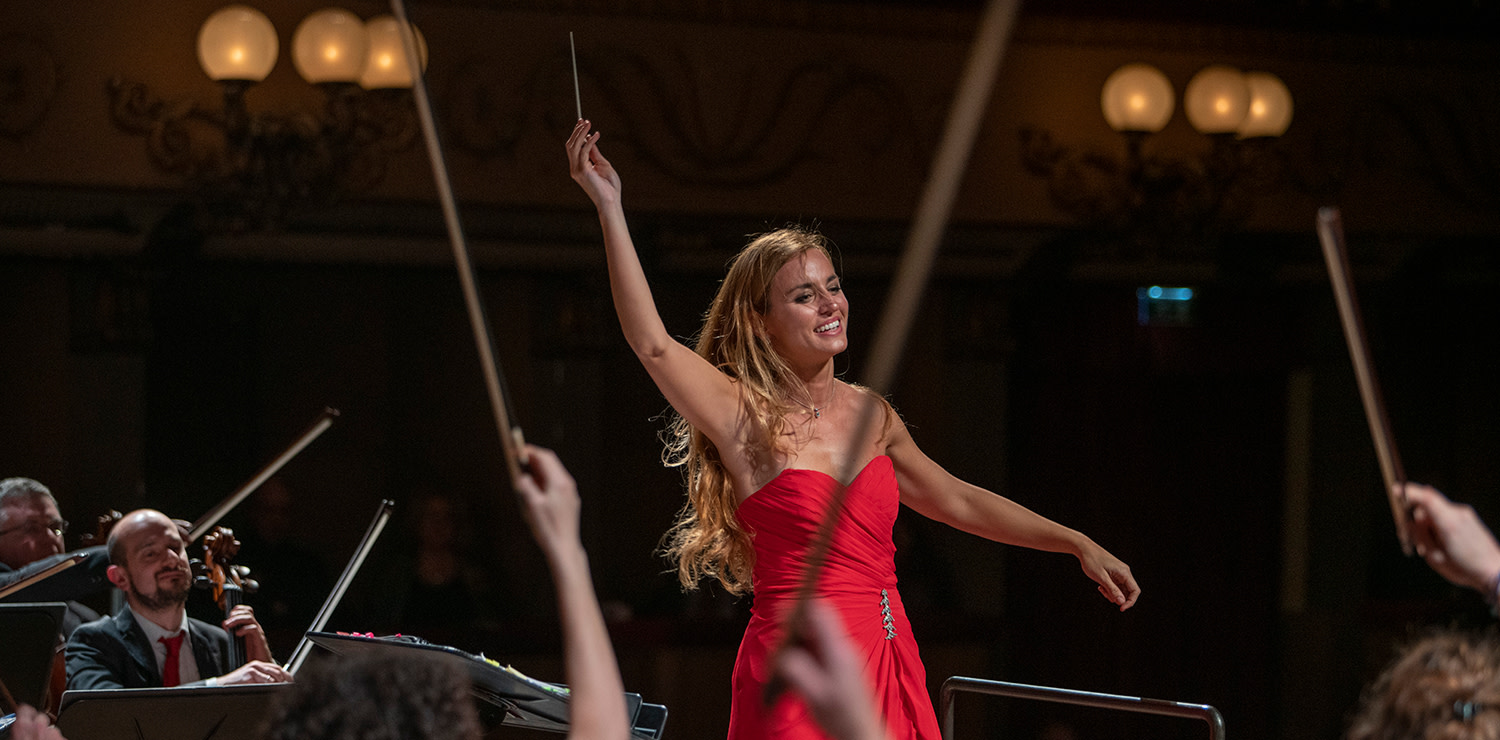Our exclusive interview with Beatrice Venezi
The meaning of music, according to Beatrice Venezi
An internationally acclaimed orchestra conductor, Beatrice Venezi is thirty years old and a native of Lucca. She has one great love, Puccini, to whom she dedicated her first album My Journey, but she also likes to try out new musical forms and languages. Her work Pensieri Illuminati, with Felice Limosani, was staged in Milan on 31 December and available to stream. Attractive and popular on social media, she has been principal guest conductor with the Florence Orchestra della Toscana (ORT) for a year.
How did your passion for music start?
My first connection with music was through dance. I took up the piano in primary school, and it was love at first sight. That’s when my story as a musician begins: I graduated in piano, and later studied composition and conducting.
What’s the essential ingredient for doing it well?
I believe one of the most important tasks of a good conductor, like any other leader, is to understand the people you’re working with and get the very best from each one of them by working towards a shared objective - in our case, a concert.
Which great female conductor is your model?
Nadia Boulanger, French director and composition teacher who also helped form some great twentieth century musical minds, from Bernstein and Copland to Quincy Jones and Piazzolla.
Italy can boast an incredible opera heritage, and much of it is from Tuscany. Which operas are your favourites?
Puccini’s operas have a special place in my repertoire, the one I love best is Madama Butterfly; it’s a very human work, and a story which, for women, is easy to identify with. For some years I’ve been passionate about Pietro Mascagni’s repertoire: we tend to think of Mascagni as a one-opera man, because of his masterpiece Cavalleria Rusticana; sometimes we do L’Amico Fritz, but there are so many amazing titles that are well worth bringing to the attention of a wider public.
What’s the future of music, in your view?
I can say for certain what it won’t be. It won’t be the streaming we’ve seen in recent months. Theatre allows you to suspend your disbelief, streaming doesn’t. However, I feel the need to create hybrid languages, and I see a great future in that.
You’re principal guest conductor of the ORT in Florence. What are the characteristics of the orchestra?
It’s an orchestra I have an excellent relationship with. The musicians are open-minded and willing to work as a close team onstage and give their very best, even when that involves extra work. In my view, that’s a great advantage.
Where will we see you at work in the coming months?
Until the end of July I’m busy in London conducting Mascagni’s Amico Fritz at Opera Holland Park. Then I have a series of concerts in Italy: Cortina, Castello Sforzesco in Milan, the Mascagni Festival in Livorno with the ORT. After that I open the season at the Olimpico in Vicenza, and finally I’m back in Argentina. The first six months of 2022 I’ll be in France preparing for a major production of Bellini’s Sonnambula, involving several French theatres.
A brief trip with Beatrice Venezi to Lucca, her home town?
Puccini’s house is an essential, and so is his museum. Piazza dell’Anfiteatro in the centre of Lucca is somewhere that gives me positive vibrations: leaving the square and seeing the Byzantine facade of the church of San Frediano is always a thrill. You shouldn’t miss a walk on the city walls, or a trip to the hills outside Lucca, a tapestry of olive groves and vineyards, all the way to Chiatri Puccini, between the Lucca valley and the Versilia sea, the site of the first house owned by Giacomo Puccini.
What do you love about Florence?
The atmosphere… in Florence you really do breathe the Renaissance, the vision of the Medici. It’s not only a question of Stendhal syndrome which, in spite of everything, hits me every time I go into the historic centre. It’s the predisposition to consider “man at the centre”. Today this is a revolutionary concept once again, because in our age people are no longer at the centre. To me, Florence is a place that can help to kickstart the recovery after the tragedy we’ve been through. The city has the potential to do that.
What music comes to mind when you think of Florence?
‘Firenze è come un albero fiorito’ Rinuccio’s aria from Gianni Schicchi. And it’s true, Florence really is like a flowering tree…









